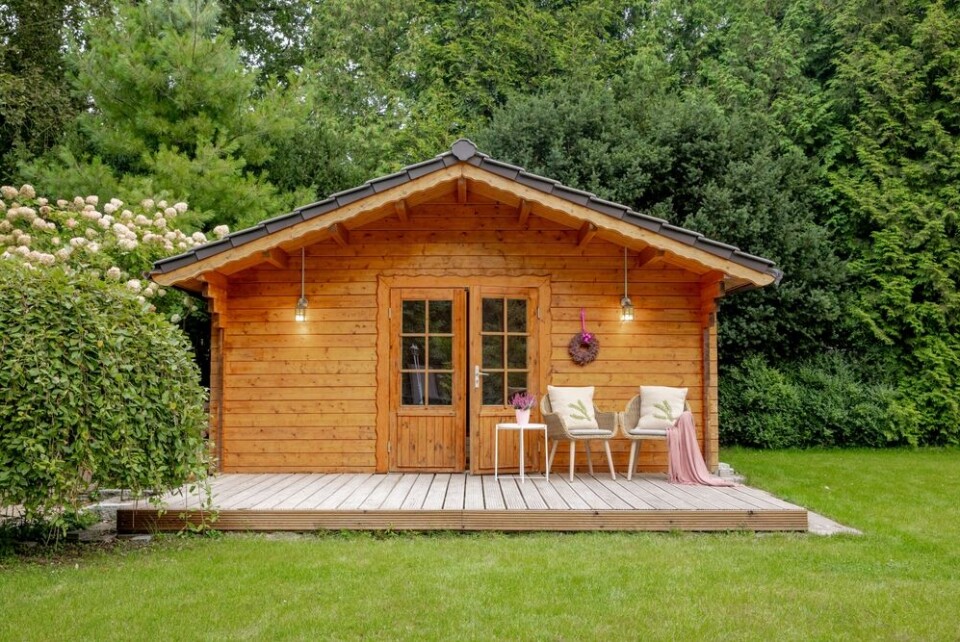-
Why your car insurance in France is expected to increase this year
Premiums are forecast to rise by four to six percent in 2026
-
Two Britons killed in avalanche in French Alps were with an instructor
French skier also died in the disaster at Val d’Isère on Friday February 13
-
British Airways launches bargain £2 flights to France (but there’s a catch)
The flights are only available to members of the airline’s Avios scheme who are redeeming loyalty points
‘Garden shed’ tax in France: what rises in 2024 and what exemptions?
The tax on building property extensions is rising again this year

If you are looking to build an extension for your property or add amenities such as sheds or outhouses, making sure you have the correct planning authorisation is vital.
However, something else to consider is additional taxes that may be levied as a result of doing such work.
This is not only limited to the potential changes to your taxe foncière (property tax) from extensions as a result of increases to the but also the taxe d’aménagement – sometimes known as a ‘garden shed tax’ – which has increased once again in 2024.
What is the ‘garden shed’ tax?
The ‘garden shed’ tax is levied on projects that need building permission (either through a permis de construire or déclaration préalable de travaux) that extend or add a new amenity to your property.
This includes swimming pools, garages, sheds and conservatories among other elements.
With regards to extensions or outhouses and so on, areas subject to the tax must be at least five m². They must have a ceiling height greater than or equal to 1.8m (including attics and cellars) if applicable.
It is calculated by multiplying the surface area in square metres by a fixed value figure.
The result is then multiplied again by a percentage rate fixed by the local commune (from 1% to 5% and a rate fixed by the department not exceeding 2.5% (in Île-de-France, the region also levies a part not exceeding 1%).
Rate increased in 2024, but less than in recent years
The flat rate value per square metre is reassessed each year, based on the annual increase in construction costs, although for certain installations there is a fixed-rate that does not necessarily change – the most common of these are shown below.
After year-on-year rises of 7% in 2022 and 8% in 2023, the increase from January 1 this year is considerably lower at only 3.4%.
It means that flat-rate value for 2024 is:
-
€1,038 in Île-de-France, compared with €1,004 in 2023 and €929 in 2022
-
€916 elsewhere, compared with €886 in 2023 and €820 in 2022
The special fixed-rate values are used for such installations as:
-
swimming pool (€250 per m²)
-
ground-mounted photovoltaic panels (€10 per m²)
-
wind turbine over 12m high (€3,000)
-
pitch for tents, caravans and mobile leisure homes (€3,000)
-
Chalets and bungalows: €10,000 per pitch
An official simulator is available here, if you want to check how much your project will cost.
Read more: Swimming pools: How to check you are within tax rules in France
How do you pay the tax?
A declaration has to be made confirming completion of the works, within 90 days. Official sites currently state the preferred method to be via the biens immobiliers section of the French tax website (https://www.impots.gouv.fr). If in doubt your tax office or mairie will be able to advise.
The bill for the tax will be sent out. If the overall tax is less than €1,500, you must pay in a single instalment within 12 months of receiving the bill.
If the bill is higher than €1,500, you can pay in two instalments, the first within 14 months, then the second within 26 months.
Are there exemptions?
The most common exemption is for small garden sheds or any other constructions with a surface area of less than or equal to 5m², that are not subject to planning authorisations of any kind.
In addition, certain local authorities include additional exemptions, such as for garden sheds or constructions under 20m² or for extensions built in properties benefiting from an interest-free loan.
Many local authorities also provide a 50% reduction in the flat-rate values used for extensions (within the main building including annexes such as a conservatory) within the first 100m² of a main residence.
Check with your local mairie when obtaining the planning authorisation if any additional exemptions or reductions apply to your project.
























